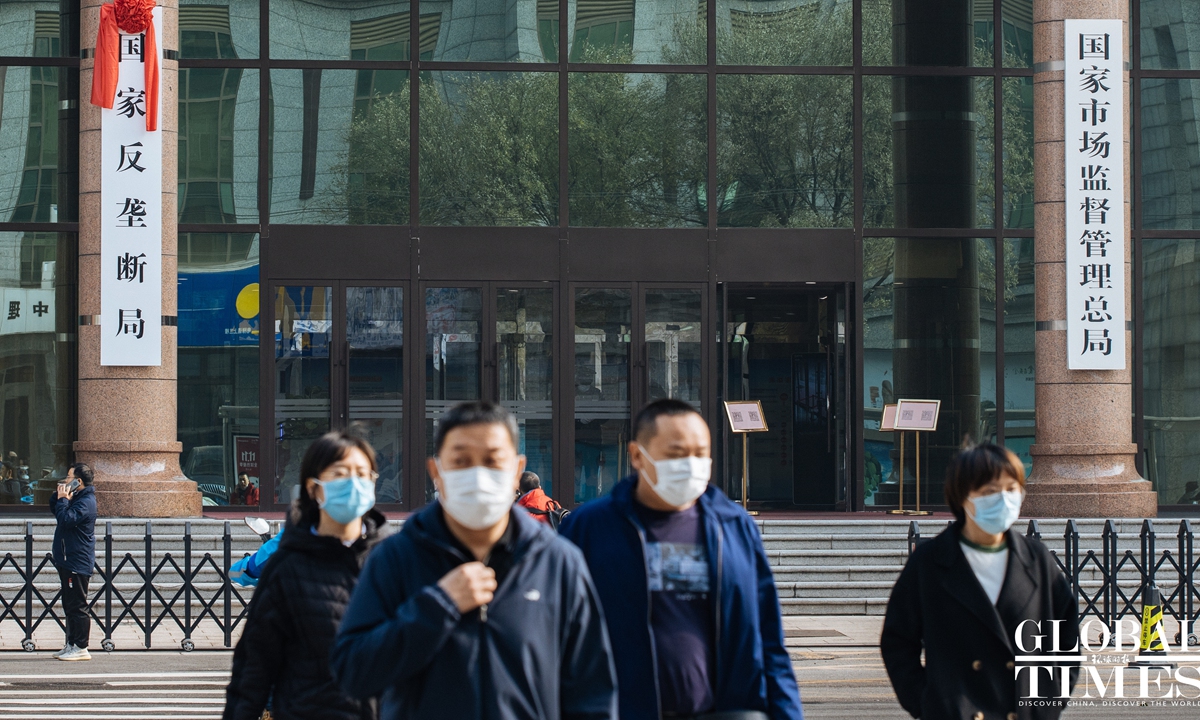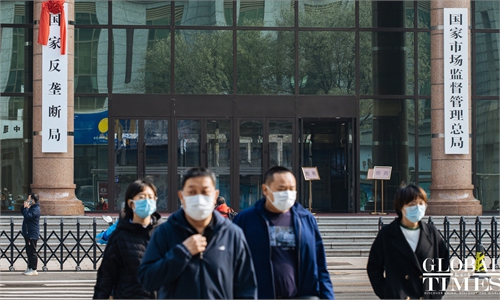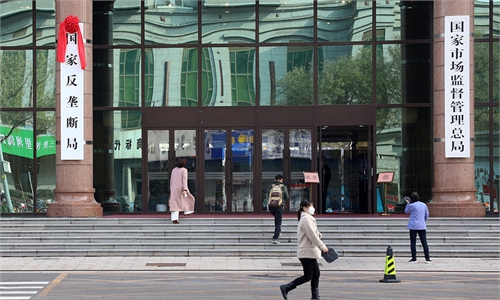
China officially launches anti-monopoly bureau in Beijing on Thursday. Photo:Li Hao/GT
The revised Anti-Monopoly Law that aims to build and create a fair market competition ecosystem compatible with China's socialist market economy, will take effect on Monday, which experts said marks an important step forward as the country looks to phasing in a healthier and sustainable digital economy.While the old version of the Anti-Monopoly Law, which has been in effect since 2007, had played a supporting role in prompting the rapid development of the Chinese digital economy, it was based on the traditional anti-monopoly concept, and does not suit the new market changes, experts said, explaining the reason why the new Anti-Monopoly Law is needed.
The new amended Anti-Monopoly Law, which was passed at the 35th meeting of the 13th National People's Congress (NPC) Standing Committee on June 24, outlines new guidelines for industry participants, and the law will assist authorities to unify their anti-monopoly enforcement measures as part of the nation's efforts to establish an open, competitive and orderly market mechanism for sustainable development.
The legislation is expected to put more weight on the regulation of the development of the internet-based platform economy, analysts said.
In the past years, a few platform conglomerates such as e-commerce giant Alibaba was fined by the regulators for engaging in monopolistic acts, Liu Dingding, a Beijing-based veteran market analyst, told the Global Times on Sunday.
The draft amendment has clarified the applications of relevant rules targeting the platform economy, stipulating that platform operators should not leverage their data, algorithm, technology, capital advantage and their own platform rules to engage in monopolistic practices, Yang Heqing, a spokesperson for the Legislative Affairs Commission of the NPC Standing Committee, said on June 16.
With the implementation of the revised law, enterprises in the internet industry are expected to develop in a balanced and evenly manner, rather than forming new market monopolies, Liu said.
The biggest penalty involving violation of the anti-monopoly law is the 18.228-billion-yuan fine imposed by the State Administration for Market Regulation on Alibaba Group in April, 2021. The company was legally bound to make rectifications, including maintaining fairer market competition and protecting the legitimate rights and interests of all merchants and consumers on the platform.
However, Liu said that there might be fewer anti-monopoly cases of such magnitude in the future, especially after the new anti-monopoly law comes into force, as the government puts more emphasis on regulating market irregularities.
Global Times



